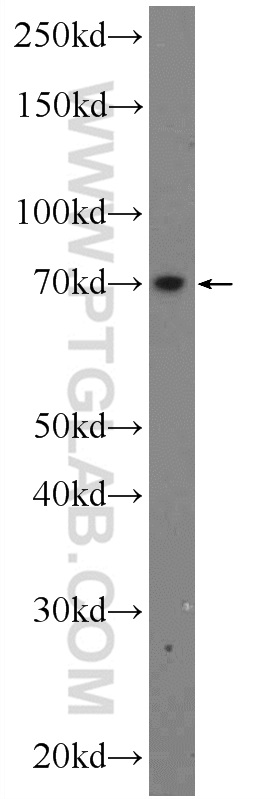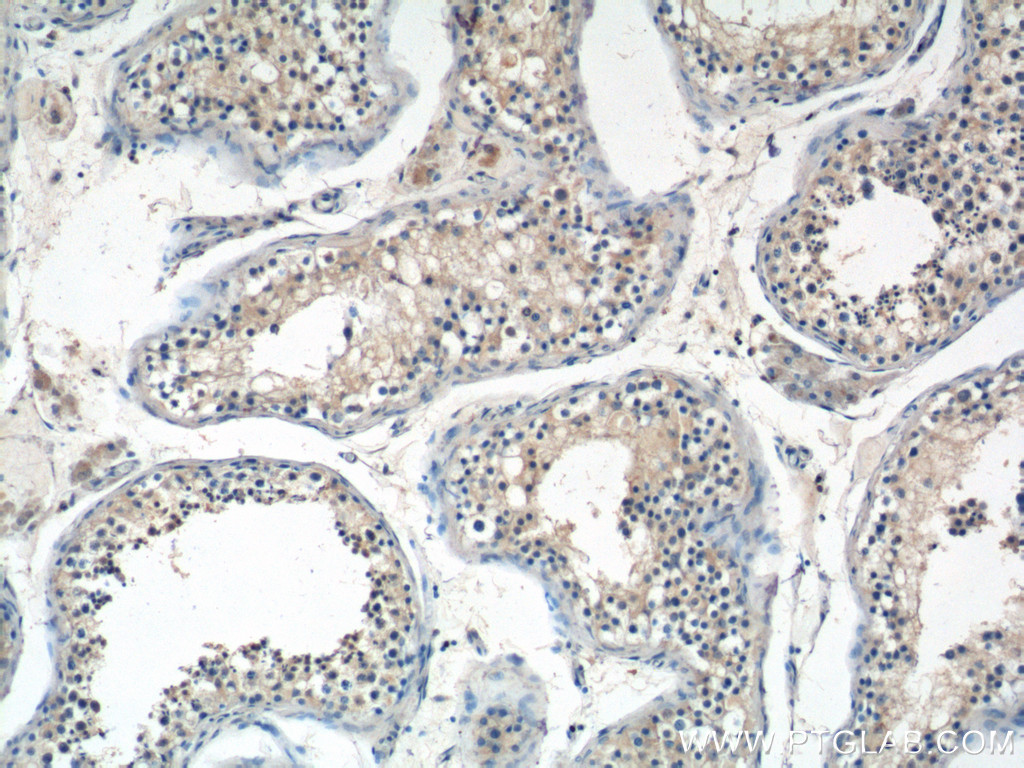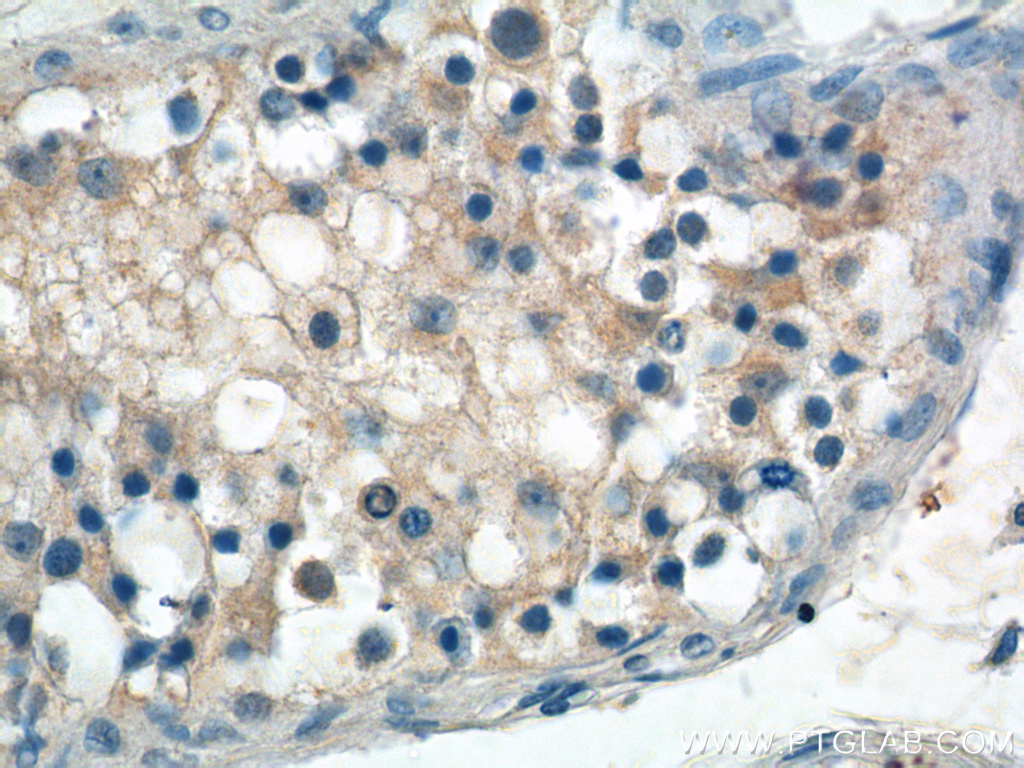验证数据展示
经过测试的应用
| Positive WB detected in | mouse small intestine tissue |
| Positive IHC detected in | human testis tissue Note: suggested antigen retrieval with TE buffer pH 9.0; (*) Alternatively, antigen retrieval may be performed with citrate buffer pH 6.0 |
推荐稀释比
| 应用 | 推荐稀释比 |
|---|---|
| Western Blot (WB) | WB : 1:500-1:1000 |
| Immunohistochemistry (IHC) | IHC : 1:20-1:200 |
| It is recommended that this reagent should be titrated in each testing system to obtain optimal results. | |
| Sample-dependent, Check data in validation data gallery. | |
产品信息
25737-1-AP targets ANKRD13B in WB, IHC, ELISA applications and shows reactivity with human, mouse samples.
| 经测试应用 | WB, IHC, ELISA Application Description |
| 经测试反应性 | human, mouse |
| 免疫原 |
CatNo: Ag22732 Product name: Recombinant human ANKRD13B protein Source: e coli.-derived, PGEX-4T Tag: GST Domain: 433-493 aa of BC032554 Sequence: FGNLNGCDEPVPSVRGSPSSETPSPGSDSSSVSSSSSTTSCRGCEISPALFEAPRGYSMMG 种属同源性预测 |
| 宿主/亚型 | Rabbit / IgG |
| 抗体类别 | Polyclonal |
| 产品类型 | Antibody |
| 全称 | ankyrin repeat domain 13B |
| 别名 | ANKRD13B, ankyrin repeat domain 13B |
| 计算分子量 | 626 aa, 70 kDa |
| 观测分子量 | 70 kDa |
| GenBank蛋白编号 | BC032554 |
| 基因名称 | ANKRD13B |
| Gene ID (NCBI) | 124930 |
| RRID | AB_2880217 |
| 偶联类型 | Unconjugated |
| 形式 | Liquid |
| 纯化方式 | Antigen affinity purification |
| UNIPROT ID | Q86YJ7 |
| 储存缓冲液 | PBS with 0.02% sodium azide and 50% glycerol, pH 7.3. |
| 储存条件 | Store at -20°C. Stable for one year after shipment. Aliquoting is unnecessary for -20oC storage. |
背景介绍
ANKRD13B (ankyrin repeat domain 13B) is an ubiquitin-binding protein belongs to the Ankrd 13 family. It specifically recognizes and binds 'Lys-63'-linked ubiquitin, and positively regulates the internalization of ligand-activated EGFR by binding to the Ub moiety of ubiquitinated EGFR at the cell membrane (PMID: 22298428). This antibody specifically recognises the 70 kDa protein.
实验方案
| Product Specific Protocols | |
|---|---|
| IHC protocol for ANKRD13B antibody 25737-1-AP | Download protocol |
| WB protocol for ANKRD13B antibody 25737-1-AP | Download protocol |
| Standard Protocols | |
|---|---|
| Click here to view our Standard Protocols |




